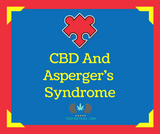I worked in the food industry for a while. And for some reason, it seemed like everyone was allergic to gluten. Like others, I ignorantly thought it was just a fad. That was until I was educated on the disease that causes people to have bad reactions to eating the protein gluten. I had no idea that it was actually an autoimmune disease that causes the body to attack itself. But now that I know it is an autoimmune disease, that also leads me to believe that CBD oil can help with celiac disease. And from the research that exists today, CBD oil could be a future treatment.
CBD oil may be able to help with celiac disease because it helps counter autoimmune diseases by reducing inflammation. Considering there is no treatment option for celiac disease besides avoiding gluten, this could be an exciting discovery for the individuals suffering.
What is Celiac Disease

Celiac disease is a painful autoimmune disease that leads to damage in the small intestine when inflammation occurs after eating gluten. 1 in 100 people around the world are likely to be affected by celiac disease, but unfortunately, it often goes undiagnosed.
When someone who has celiac disease eats gluten, which is a protein found in wheat, rye, and barley, their body reacts with an immune response that attacks the small intestine. This can lead to damage in the villi which are small fingerlike projections that line the small intestine that promotes nutrient absorption. When this part of your body gets damaged, nutrients cannot be absorbed in the body properly.
If left untreated, celiac disease can lead to more serious health problems like:
- Type 1 Diabetes
- Multiple Sclerosis
- Dermatitis Herpetiformis
- Anemia
- Osteoporosis
- Infertility and Miscarriage
- Epilepsy
- Migraines
- Short Stature
- Intestinal Cancers
Causes of Celiac Disease
Celiac disease is hereditary, which means that it runs in the family. If you have a first-degree relative, like a parent, child, or sibling with celiac disease, you have a 1 in 10 risk of developing celiac disease. This disease can start at any age, and the symptoms may change as the individual ages. This is why it is so important to know what the symptoms look like so you can take precautions as soon as possible.
Symptoms of Celiac Disease
Symptoms of Celiac in Children
While digestive issues are more common in infants and children, there are still symptoms you should look out for. If you notice these happening in your child, you will need to take them to a doctor to get tested.
- Abdominal bloating and pain
- Chronic diarrhea
- Vomiting
- Constipation
- Pale, foul-smelling, or fatty stool
- Weight loss
- Fatigue
- Irritability or behavioral issues
- Dental enamel defects on adult teeth
- Delayed growth and puberty
- A short stature
- Failure to thrive
- ADHD
Symptoms of Celiac in Adults
Adults are less likely to have the digestive symptoms and only about one-third of them experiencing diarrhea. If you notice these symptoms in yourself, you need to go see a doctor and get tested for celiac disease.
- Unexplained iron-deficiency anemia
- Fatigue
- Bone or joint pain
- Arthritis
- Osteoporosis or osteopenia
- Liver and biliary tract disorders
- Depression or anxiety
- Peripheral neuropathy
- Seizures or migraines
- Missed menstrual periods
- Infertility or recurrent miscarriage
- Canker sores inside the mouth
- Dermatitis herpetiformis
Treatment Options for Celiac Disease

The only treatment for celiac disease is spending the rest of your life avoiding gluten. You must avoid foods with wheat, rye, and barley. Even just eating small amounts of gluten, like crumbs of bread or a sip of beer, can cause damage to the smaller intestine. This lifestyle can be complicated and frustrating, especially when you have people like me who aren’t sure about the disease. Scientists are looking for a way to treat celiac disease, and studies suggest the solution may be medical cannabis like CBD oil.
What is CBD?
Cannabidiol (CBD) is a chemical that is extracted from the cannabis plant. There are a lot of different ways you can get CBD. Growers can breed strains of cannabis that are low THC content and high CBD, or they can grow industrial hemp which offers all cannabinoids except for THC. At CBD Instead, our products come from hemp plants.
The reason CBD is so effective is that it interacts with our endocannabinoid system. While THC binds directly to receptors which causes the intoxicating feeling associated with cannabis, CBD elevates chemicals that are produced by your body to help regulate your body. The chemicals it elevates are called endocannabinoids, and they bind to the cannabinoid receptors located all over your body.
Cannabinoid Receptors and Endocannabinoids
One way CBD oil works is by elevating endocannabinoids. The two main endocannabinoids that we know about are called anandamide and 2-AG. Both endocannabinoids bind to both cannabinoid receptors, but they each mainly bind with a specific receptor to help mediate systems in your body.
Anandamide mainly binds to the CB1 receptors which are all over your body but more densely located in your brain. The CB1 receptor helps to regulate your neurological system which includes your appetite, sensitivity to pain, mood, and sleep cycle. 2-AG mainly binds to the CB2 receptors which are more spread out evenly throughout your body. The CB2 receptor helps to mediate your immune system which is why CBD oil has shown in studies to be so effective against inflammation.
How can CBD Oil Help with Celiac Disease?
In 2003, there was an Italian study that focused on celiac disease in children. They found that the cannabinoid receptors in the intestinal tract were more prevalent in untreated patients opposed to those who had been following a strict gluten-free diet for over a year. This led scientists to believe that targeting these cannabinoid receptors could help the patients find relief from their symptoms more quickly and effectively.
CBD oil may be effective because it inhibits the enzyme fatty acid amide hydrolase (FAAH), which is the enzyme responsible for the hydrolysis of anandamide. The FAAH inhibition helps to promote anti-inflammatory effects within the intestine which is why many scientists believe that CBD oil may be a valid treatment to relieve symptoms of pain, inflammation, and irritation in the gastrointestinal tract.
For many who suffer from celiac disease, it isn’t even the disease itself that is the most troubling. It is the persistent symptoms that can take the largest toll on the individual. Luckily, these symptoms may also be able to be treated by CBD oil. And not just for the treatment, but repair the damage already done, as well.
CBD for Nerve Repair
Studies suggest that people who have celiac may be at a higher risk of nerve damage. When taking CBD oil, you may be able to repair that damage. Researchers have discovered that CBD oil has neuroprotective and neurogenerative properties. This means that CBD oil may be able to prevent further nerve damage as well as repair the damage that already exists.
CBD for Nausea
Celiac disease often causes nausea which can keep people from eating or making their day-to-day life more difficult. When taking CBD oil, you may be able to combat that nauseous sensation. CBD oil has shown in studies to have anti-nausea effects in patients undergoing chemotherapy, leaving scientists to believe it may be a valid option for nausea caused by other illnesses.
How do you take CBD Oil for Celiac Disease?

Since celiac attacks your intestines, taking CBD pills or eating CBD edibles can help you get the CBD to the site of physical trauma. The CBD goes through your digestive system and is metabolized by your liver while also soaking into the walls of your intestine as it digests helping to elevate the endocannabinoid 2-AG to bind to the CB2 receptors.
When medicine is digested, though, it loses its potency. Digestion is a rigorous process which is why many people choose to use products like tinctures or CBD vapes. These methods of taking CBD oil can get the CBD into your system more quickly for those times when the pain or nausea is too much, and you don’t have time to wait.
Have you used CBD oil for celiac disease? We would love to hear how it has helped and how you take CBD for your pain!














